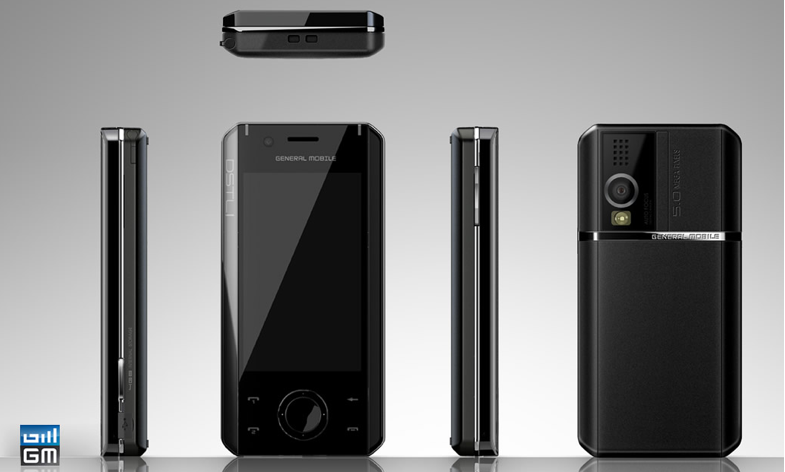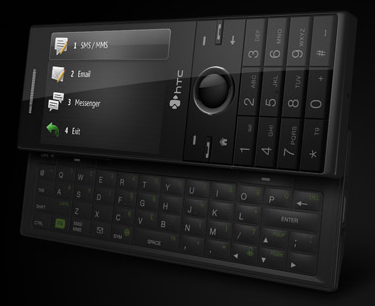Feb 17, 2009
Virtual reality in acquired brain injury upper limb rehabilitation
Virtual reality in acquired brain injury upper limb rehabilitation: evidence-based evaluation of clinical research.
Brain Inj. 2009 Mar;23(3):179-91
Authors: Mumford N, Wilson PH
PRIMARY OBJECTIVE: Acquired brain injury (ABI) is associated with significant cognitive, behavioural, psychological and physical impairment. Hence, it has been important to leverage assessment approaches in rehabilitation by using current and emerging technologies, including virtual reality (VR). A number of VR rehabilitation programmes have been designed in recent years, mainly to improve upper limb function. However, before this technology gains widespread use, evaluation of the scientific evidence supporting VR-assisted rehabilitation is needed. The present review aimed to assess the rationale, design and methodology of research investigating the clinical impact of VR on ABI upper-limb rehabilitation. RESEARCH DESIGN: A total of 22 studies were surveyed using a Cochrane-style review. RESEARCH METHODS: Studies were classified on a number of key criteria: theoretical bases and aims, sample populations and recruitment procedures, characteristics of the VR systems, evaluation design including control procedures and statistical analysis of results. Studies were rated using the Downs and Black (DB) scale. RESULTS: The review demonstrated that few studies used a conventional randomized controlled study design. Moderate support was shown for both teacher-animation and game-like systems. CONCLUSION: While VR-assisted rehabilitation shows early promise, clinicians are advised to be cautious about adopting these technologies before adequate data is available.
13:18 Posted in Cybertherapy | Permalink | Comments (0) | Tags: virtual reality, cybertherapy, brain injury
Feb 16, 2009
The development of personalised cognitive prosthetics
The development of personalised cognitive prosthetics.
Conf Proc IEEE Eng Med Biol Soc. 2008;1:787-90
Authors: Nugent CD, Davies RJ, Donnelly MP, Hallberg J, Hariz M, Craig D, Meiland F, Moelaert F, Bengtsson JE, Savenstedt S, Mulvenna M, Droes RM
Persons suffering from mild dementia can benefit from a form of cognitive prosthetic which can be used to assist them with their day to day activities. Within our current work we are aiming to develop a successful user-validated cognitive prosthetic for persons with mild dementia. We have devised a three phased waterfall methodology to support our developments. Based on the evaluation of the first of these phases which involved the processes of user requirements gathering, prototype development and evaluation of in situ deployment of the technology we have been able to guide the technical development within the second phase of our work. Within this paper we provide an overview of the first phase of our methodology and demonstrate how we have used the results from this to guide the second phase of our work, especially with regards to the notion of personalisation.
23:03 Posted in Neurotechnology & neuroinformatics | Permalink | Comments (0) | Tags: prosthetics
Improving the performance of brain-computer interface through meditation
Improving the performance of brain-computer interface through meditation practicing.
Conf Proc IEEE Eng Med Biol Soc. 2008;1:662-5
Authors: Eskandari P, Erfanian A
Cognitive tasks using motor imagery have been used for generating and controlling EEG activity in most brain-computer interface (BCI). Nevertheless, during the performance of a particular mental task, different factors such as concentration, attention, level of consciousness and the difficulty of the task, may be affecting the changes in the EEG activity. Accordingly, training the subject to consistently and reliably produce and control the changes in the EEG signals is a critical issue in developing a BCI system. In this work, we used meditation practice to enhance the mind controllability during the performance of a mental task in a BCI system. The mental states to be discriminated are the imaginative hand movement and the idle state. The experiments were conducted on two groups of subject, meditation group and control group. The time-frequency analysis of EEG signals for meditation practitioners showed an event-related desynchronization (ERD) of beta rhythm before imagination during resting state. In addition, a strong event-related synchronization (ERS) of beta rhythm was induced in frequency around 25 Hz during hand motor imagery. The results demonstrated that the meditation practice can improve the classification accuracy of EEG patterns. The average classification accuracy was 88.73% in the meditation group, while it was 70.28% in the control group. An accuracy as high as 98.0% was achieved in the meditation group.
22:57 Posted in Brain-computer interface, Mental practice & mental simulation | Permalink | Comments (0) | Tags: brain-computer interface, meditation
Feb 11, 2009
Annual Review of Cybertherapy and Telemedicine
The new open-access journal "Annual Review of Cybertherapy and Telemedicine" is online.
ARCTT is a peer-reviewed journal covering a wide variety of topics of interest to the mental health, neuroscience, and rehabilitation communities.
The mission of ARCTT is to provide systematic, periodic examinations of scholarly advances in the field of CyberTherapy and Telemedicine through novel experimental clinical studies or critical authoritative reviews. It is directed to healthcare providers and researchers who are interested in the applications of advanced media for improving the delivery and efficacy of mental healthcare and rehabilitative services.
16:41 Posted in Research tools | Permalink | Comments (0) | Tags: cybertherapy, telemedicine
Feb 10, 2009
iPhone class
Stanford’s students have developed a number of interesting applications for the iPhone. Most of them are now available here
My favourite application is "Stress Bust", created by Greg Wientjes, a relaxing tool which provides a video of soothing ocean waves. A guiding voice assists the user in relaxing through a progressive muscle squeezing up through the body.

The complete list of iPhone apps is below (credits: TechCrunch).
Qingwen - Karan Misra

Qingwen is an extremely focused and streamlined Chinese-English and English-Chinese dictionary designed with the Chinese reader in mind. Lookup is meant to be fast and easy. There is just one search field which accepts anything you throw at it- Chinese characters, Pinyin, and English - and figures out the most relevant results. Since Qingwen is meant for students of Chinese, you can also easily add words to word lists for future reference and discover relationship between characters by seeing which other words they occur in and which other characters have similar sounds.
Qingwen uses a modified version of CC-CEDICT as its dictionary. Free.
Air Guitar - James Anthony and Edward Marks

Air Guitar provides all the fun of rocking out with none of the talent or commitment required to play a real instrument. Unlike other guitar apps, Air Guitar uses the built-in accelerometer to let you really rock: with your iPhone or iPod touch in hand, just start strumming away at your imaginary axe. $1.99
HaveASec - Nafis Jamal and Andrew He

Do you HaveASec? If so, this is the perfect application for you. You can quickly create a short survey or poll to send out to your friends. You can also ask a public poll to see what our users think. Friends don’t have an iPhone? No problem! We have a fully functional web interface for all mobile phones and computers. Free
iDiscover - Paul Wilson and Nafis Jamal

Do you have a second? Want to read an article of interest to you but don’t have the time to find it? How about a new video to kill some time on the train? Or, what about checking out a new application that isn’t on the Top 25 list? iDiscover lets you easily discover new articles, videos, and applications customized to your interests. You and your friends can also easily share these articles, videos, and applications that you enjoy with each other. Free.
Site Saver - Vikram Oberoi

Site Saver allows you to save websites locally on your iPhone or iPod Touch. Save online references to train schedules, recipes, or product reviews to your device for quick access on the go, or keep your daily fix of online articles just a tap away! $2.99, pending App Store approval.
Abodi - Keyan Salari

Abodi allows you to search listings on Craigslist and save your favorite results for viewing access on the go. You can call or email the ad poster, map out the locations of rental/sale properties and even take notes and photos of the properties you visit. Abodi knows where you are located using the iPhone’s GPS technology, so you can find or rank listings by their distance to your current location or other points of interest! Free, to be submitted by 01/26/09
Heydar - Mark Kieling, Shahryar Khan, Matthew Pease, and Matthew Lawyer

Heydar is a fun new way to meet people. Get started by taking your own headshot. Then view headshots of nearby Heydar users. Tap “Hey” if you find someone attractive. Don’t worry… they will only find out you tapped them if they also tap you. What you decide to do next is up to you… Free, pending App Store approval.
11:48 Posted in Wearable & mobile | Permalink | Comments (0) | Tags: iphone
Conference on Neuroprosthetic Devices
First International Conference on Neuroprosthetic Devices will take place at National Chiao Tung University, Hsinchu, Taiwan on March 19th and 20th, 2009. The mission of this newly founded conference is to foster West-East interaction and collaboration in the rapidly advancing clinical use of neuroprosthetics. The specific aim of the first conference is to expose unique technological and neurological research opportunities in Taiwan. National Chaio Tung University is one of the best universities in Taiwan and is located right next to the world-famous HsinChu Science Park hosting hundreds of biotechnology, semiconductor, and electronics companies.
The conference sessions will cover several key areas in the neuroprosthetic development, such as deep brain stimulation for treatment of Parkinson’s disease and epilepsy, devices for restoring hearing and overcoming muscle paralysis, microelectrode biocompatibility, and novel microelectrode technologies. For detailed conference program and registration information, please visit http://www.bsrc.nctu.edu.tw/ICND/.
11:34 Posted in Positive Technology events | Permalink | Comments (0) | Tags: neuroprosthetics







